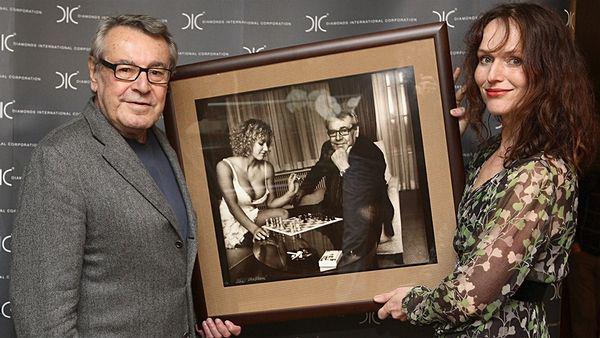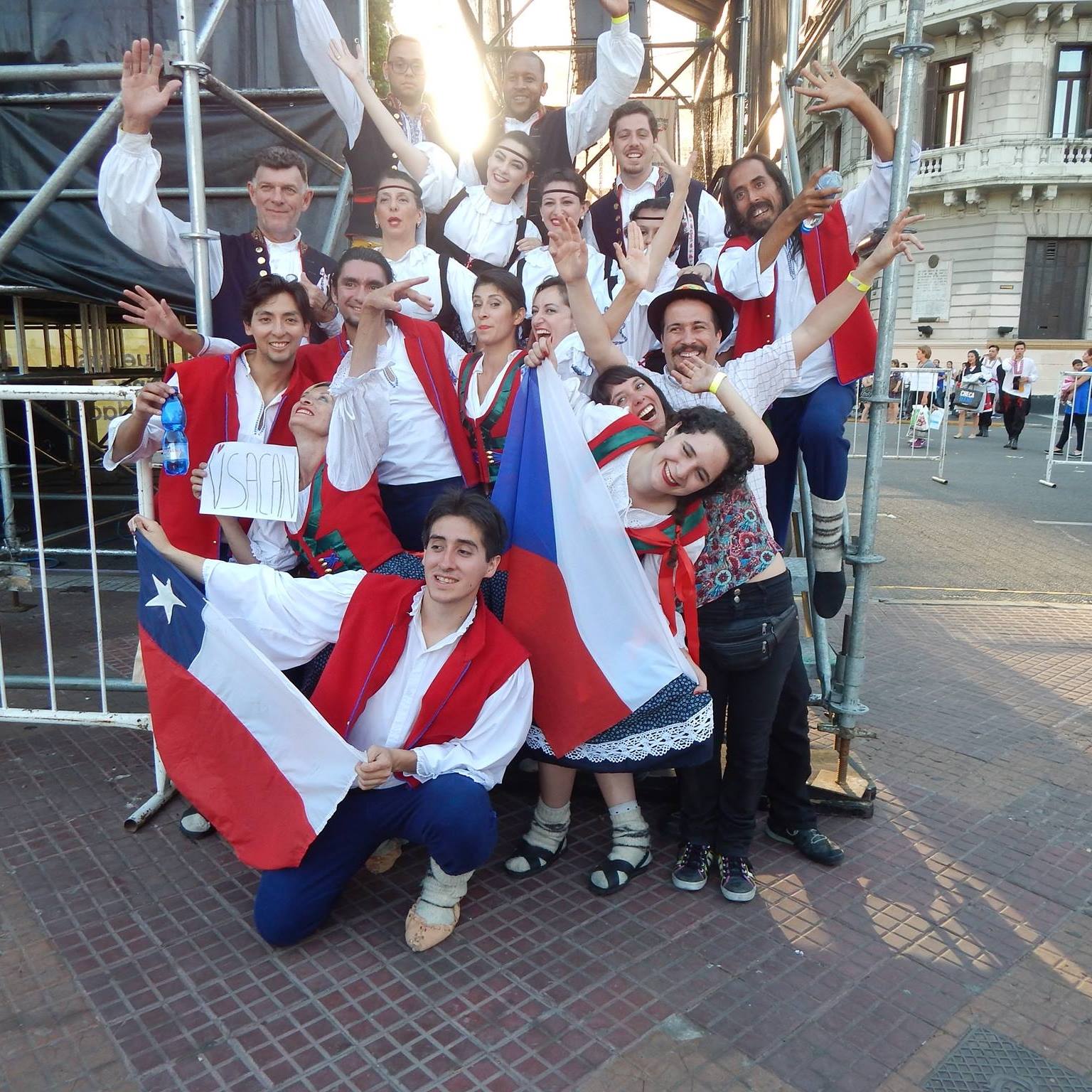Miloš Forman, un triunfador checo en Hollywood
Director de cine, actor y guionista.
Miloš Forman es una de las grandes figuras checas del cine. Aclamado y premiado en su país y en el mundo, especialmente como director, Forman ha cosechado el merecido fruto del triunfo y la fama internacionales.
Vida
Čáslav, Checoslovaquia (actual República Checa); 18 de febrero de 1932.
Jan Tomáš Forman, mucho mejor conocido como Miloš Forman, es lo que puede llamarse un „hijo del holocausto“ o, más bien, una víctima de éste. Sus padres, ambos protestantes, murieron en campos de concentración nacionalsocialistas, quedando huérfano a temprana edad. Ella en el conocido campo de Auschwitz. Él en Buchenwald, por haber distribuido libros censurados por el régimen totalitario.
Durante la Segunda Guerra Mundial, Miloš vivió con parientes y luego descubrió que su padre biológico era en realidad un arquitecto judío llamado Otto Kohn.
Después de la guerra, Miloš acudió a la escuela Krále Jiřího en la ciudad de Poděbrady. Tuvo entre sus compañeros de estudios al luego dramaturgo, disidente y gobernante checo Václav Havel (Praga, 1936 – Praga, 2011), así como a los hermanos Mašín, a Zbyněk Janata, amigo de éstos, y a los también futuros cineastas Ivan Passer y el polaco Jerzy Skolimowski. Más tarde estudió dirección cinematográfica en la Escuela de Cine de Praga siendo uno de sus maestros el conocido director de cine, guionista y docente checo Otakar Vávra (Hradec Králové, 1911 – Praga, 2011), considerado padre de la cinematografía checa.
Forman dirigió varias comedias en la antigua Checoslovaquia. Pero justo en 1968, cuando la URSS y sus aliados del Pacto de Varsovia invadieron el país para liquidar la Primavera de Praga, se encontraba en París negociando la producción de su primera película americana. Así, el estudio checo para el que trabajaba le despidió, alegando que se encontraba ilegalmente fuera del país. En todo caso, gracias a su perspicaz y crítica comprensión artística de la realidad, ya Forman era considerado sospechoso para el régimen comunista que gobernaba el país desde 1948.
Forman se trasladó, luego de este episodio, a Nueva York, ciudad estadounidense donde se convirtió en profesor de cine en la Universidad de Columbia y codirector (junto a František Franek) de la división de cine de Columbia. Uno de sus protegidos fue el futuro director James Mangold.
A pesar de las dificultades iniciales, Forman inició su trabajo de dirección en el país que le había acogido y logró gran éxito en 1975 con la adaptación de la novela de Ken Kesey titulada «One Flew Over the Cuckoo’s Nest». Este filme, que tuvo en su reparto a Jack Nicholson en el papel protagonista y a Louise Fletcher y Danny DeVito, ganó 5 Premios de la academia, incluyendo el de mejor dirección.
En 1977, Forman se hizo ciudadano de los Estados Unidos y continuó su carrera. Años después, otro de sus notables éxitos, la película «Amadeus» (1984), en parte rodada en Praga, recibió 8 Premios de la academia.
En 1997, Forman recibió el Globo de Cristal por su destacada contribución artística al mundo del cine en el mundialmente reconocido Festival de Karlovy Vary.
El estilo de Forman se vio influido por el espíritu del llamado «cinéma-verité». Lo que le interesaba era lanzar una mirada a su mundo y habitantes contemporáneos, con sus problemas comunes y sus formas de comprender la realidad. En varias ocasiones trabajó con actores no profesionales, elaborando una poética original de la tragicomedia de la existencia.
Los hijos de Forman, Matěj y Petr Forman son actores de éxito y han fundado una compañía propia.
Obra y Legado
Junto a sus condiscípulos (Ivan Passer, Jaroslav Papoušek y Miroslav Ondříček) filmó las obras fundamentales de la cinematografía checa de los años sesenta «Černý Petr» («Petr, el negro», 1964), «Lásky jedné plavovlásky» («Los amores de una rubia», 1965) y «Hoří, má panenko» («¡Al fuego, bomberos!», 1967).
Pero Forman ha sido, hasta ahora, el realizador checo más conocido y premiado en el panorama internacional. Luego de los éxitos mencionados, («One Flew Over the Cuckoo’s Nest» y «Amadeus») otras películas de Forman han sido «The People vs. Larry Flynt» (1996), con Woody Harrelson, Courtney Love y Edward Norton; «Man on the Moon» (1999), con Jim Carrey, Danny DeVito y Gerry Becker; «Goya’s Ghosts» (2006) con Javier Bardem, Natalie Portman y Stellan Skarsgård; y «Dobře placená procházka» (Un paseo bien pagado, 2009) con Dáša Zázvůrková, Petr Stach y Petr Píša, y dirigida con uno de sus hijos, Petr Forman.
Pero Forman también ha sido actor. Por ejemplo, el actor y director norteamericano Edward Norton, un gran admirador suyo, le invitó a participar en la película «Keeping the faith» (2000). Allí, Forman actúa en el pequeño papel del Padre Havel y comparte con los afamados actores Ben Stiller, Edward Norton, Jenna Elfman y Anne Bancroft (1931 – 2005).
Algunos de sus filmes más importantes son:
1967: «Hoří, má panenko!» (en español, «!Al fuego, bomberos!»)
1971: «Taking Off» (Gran premio del jurado para Forman en el festival de Cannes)
1975: «One Flew Over the Cuckoo’s Nest» (cinco Óscars incluído el de a la mejor dirección)
1979: «Hair» (famoso musical pacifista)
1984: «Amadeus» (ocho premios Oscar, segundo en su carrera a la mejor dirección)
1999: «Man on the Moon»
2006: «Goya’s Ghosts»
Frases Célebres
De la entrevista a Miloš Forman disponible en los archivos de la George Washington University sobre la Guerra Fría (en inglés). Fuente: http://www.gwu.edu/
“All the Sixties were complicated, you know. On the one hand it was funny too, you know; on the other hand it was cruel, you know. The communists are so cruel, because they impose one taste on everybody, on everything, and who doesn’t comply with their teachings and with their ideology, is very soon labeled pervert, you know, or whatever they want you call it, or counterrevolutionary or whatever. And then the censorship itself, that’s not the worst evil. The worst evil is — and that’s the product of censorship — is the self-censorship, because that twists spines, that destroys my character because I have to think something else and say something else, I have to always control myself. I am stopping to being honest, I am becoming hypocrite — and that’s what they wanted, they wanted everybody to feel guilty, they were, you know… And also they were absolutely brilliant in one way, you know: they knew how effective is not to punish somebody who is guilty; what Communist Party members could afford to do was mind-boggling: they could do practically anything they wanted — steal, you know, lie, whatever. What was important — that they punished if you’re innocent, because that puts everybody, you know, puts fear in everybody»
«First of all, whoever didn’t want to be a member of this association or the other association, was branded, you know, like a dangerous individualist, you know, infected by the Western decadence, you know. So everybody joined. And everything is controlled and everybody is a member of some committee, because then their watchdogs placed in the committees can control everything, what this person says or how this person think[s], you know. It was… [Sighs] it was just ridiculous»
«You know, you have to really decide where you want to live: if you want to live in the jungle or in the zoo. Because if you want the beauty, if you want freedom, the jungle is… that’s your world. But you’re in danger there, you have to live with snakes, sharks, tigers, skunks, you know, mosquitoes, leeches. You want to be safe, you have to live in the zoo. You are protected. You know, if you are a lamb, the tiger will not attack you. You know, you’ll get a little bit something to eat every day; that’s fine. You have to work hard, but you live behind the bars, and what’s wonderful — you live there behind the bars and you dream about the beauty of the jungle. Now what happened was that the bars opened, and everybody runs after the dream. And suddenly, well, yeah, it’s beautiful — yes, I am free to go wherever I want, do whatever I want, but where do I want to go? Oh, my God, and here is a tiger and here’s a snake. Oh, oh, and people have a tendency to, you know, back. And you will be surprised how many people prefer to live in the zoo; they are not ready to pay for the freedom; they think that freedom should be, you know, for free, even for granted, which never is, never is»
«I tell you, in my opinion, the cornerstone of democracy is free press — that’s the cornerstone. I’m convinced if the press… it was not possible, of course, but if the free press existed through this century, there wouldn’t be Hitler there wouldn’t Stalin, there wouldn’t be all this incredible price people have to pay for their freedom, you know, because that’s what they’re always first after… newspapers, radio, television, everything like that».
¿Sabías Qué?
… Miloš Forman fue compañero de escuela de Václav Havel?
… Miloš Forman ha obtenido dos premios Oscar a la mejor dirección, tres Globos de Oro premios BAFTA en la misma categoría?
Más Infomación en:
En el portal oficial de la República Checa:
http://czech.cz/es/
En Public Broadcasting Service:
http://www.pbs.org/wnet/
En IMDB:
http://www.imdb.com/name/
Autor: Rafael E Rincón-Urdaneta Z
Fotografía: Novinky.cz






